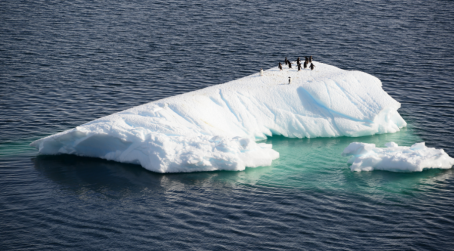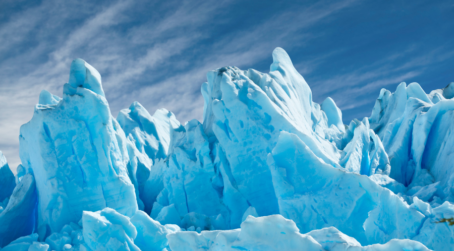FRISP was established in 1983 as the “Filchner‐Ronne Ice Shelf Programme”, a subcommittee of the SCAR Working Group on Glaciology, with the aim of stimulating and coordinating glaciological research on the Filchner‐Ronne Ice Shelf. An initial report summarised the work that had been done to date and plans for the future, with contributions from representatives of Argentina, Germany, Norway, UK, USA and USSR. Initially the German field programme was the most active, being centred on the Filchner Station that had been established on the ice shelf in the 1981/82 summer season. The first science workshop, hosted by the Alfred‐Wegener‐Institute in Bremerhaven, Germany, on 11‐12 October 1984, and the subsequent Report No. 2, summarised the early findings of the German programme. A second international workshop, held on 4‐5 June 1986 at Scott Polar Research Institute in Cambridge, UK, included delegates from Germany, Norway and the UK, and set the pattern for the coming years. Workshop locations rotated around the three main nations undertaking fieldwork on Filchner‐Ronne Ice Shelf and in the broader southern and eastern Weddell Sea region. They comprised presentations of recent field results and the sharing of plans for fieldwork in the coming seasons, enabling the scope for logistical cooperation to be explored. Short summaries of the presentations and discussions were documented in a series of reports, produced by the Alfred‐Wegener‐Institute.
Through the late 1980s and the 1990s FRISP remained active with well‐attended workshops and an expansion of the geographical spread both of the scientific activities reported and of the affiliations of the attendees. Most workshops attracted around 30 delegates, but numbers peaked at around 50, and participants were drawn from not just the three core nations but also from Austria, Belgium, Chile, Finland, the Netherlands, Sweden and the USA. The report series also continued, with the contributions tending towards preliminary papers rather than the extended abstracts and data reports of earlier volumes. Nevertheless, by the time of the 14th Workshop, held at Madingley Hall, Cambridge, on 15‐16 June 1999, there was a recognition that the name no longer fitted the organisation. The activities of the core nations were no longer so focussed on the Filchner‐Ronne Ice Shelf, and the calving of iceberg A‐38 the previous October, carrying Filchner Station with it, brought a symbolic end to an era of German field activity there. However, there was unanimous agreement that the workshops were of great value and that FRISP had become a well‐known moniker for activities that now had a scientific focus on ice‐shelfocean interactions at their core, rather than the earlier geographical focus. Of particular value was the fact that FRISP had long been a forum for inter‐disciplinary discussions among specialists from the fields of glaciology and oceanography that were conventionally seen as having little common ground. A decision was therefore taken to rename FRISP as the “Forum for Research into Ice Shelf Processes”.
The first two workshops of the new era attracted only 26 delegates between them, forcing a further consideration of what the future might hold for FRISP. The broadening of the geographical focus meant that the discussion of field plans, one of the major components of the early workshops, became a steadily smaller part of the proceedings. However, the size and scope of Report No 14 that emerged from those workshops and the attendance of delegates from as far away as Australia were testaments to the growing importance of the science presentations. Starting with this report, publication of the report series was taken on by the Bjerknes Centre for Climate Research, in Bergen, and PDFs of the published papers were made available online. The 17th Workshop, held at the British Antarctic Survey, Cambridge, on 17‐18 June 2003, was combined with an annual workshop of the UK Natural Environment Research Council’s “Autosub Under Ice” programme, so numbers were swelled to 45, and the future of FRISP seemed secure as the next three workshops attracted around 20 delegates each. The geographical spread of the science was now truly circum‐polar, covering Filchner‐Ronne, Ross, Amery, Fimbul, Brunt, Larsen, George VI and the Amundsen Sea ice shelves, while a small number of presentations focussed on ice‐ocean interaction
in Greenland and the Arctic, and delegates were drawn from as far afield as China and New Zealand. At the last of these, the 20th workshop, held at the British Antarctic Survey on 21‐22 June 2006, a decision was taken to hold joint workshops with the US West Antarctic Ice Sheet Initiative (WAIS) during the International Polar Year (IPY) era.
The joint FRISP/WAIS workshops that were held in 2007, 2008 and 2009 effectively completed the transition from the fieldwork‐focussed workshops of the early years to the small, informal science workshops of recent years. The two meetings hosted in the US (2007 and 2009) were larger and followed the traditional WAIS format, while the 2008 workshop, hosted in the UK, was a flavour of what post‐IPY FRISP workshops would become. The venue was somewhat remote (in the heart of the Peak District National Park) to ensure that interaction among the 50 delegates could continue beyond the formal scientific proceedings, and poster sessions were included to increase the amount of science that could be presented without cutting down on discussion time. Most recent workshops have been similar in character, with attendances of up to 70 delegates drawn from Japan, Korea, France and Iceland in addition to the nations previously mentioned. The growth of the workshops during the IPY years, and the continuing trend towards presentations of material that is closer to formal publication, brought the published report series to a natural end. In 2011 and again in 2015 the annual workshops were held in conjunction with International Glaciological Society Symposia, held in La Jolla and Cambridge, respectively. So for those two years the workshops became week‐long science conferences, with some of the proceedings published in thematic volumes of the Annals of Glaciology, but the intervening and subsequent years have seen a return to the now traditional workshop format.
The Forum for Research into Ice Shelf Processes (FRISP) was first developed by SCAR in 1983, with a specific geographical focus on the Filchner‐Ronne Ice Shelf. It later broadened its scope to the whole of Antarctica and Greenland. In 2016, it was confirmed as an Expert Group under the SCAR Physical Sciences Group to focus on the glaciological, oceanic and atmospheric processes governing the behaviour of ice shelves that are key to the ice sheet contribution to sea level change.
This Expert Group is distinct from and complementary to the existing ISMASS Expert Group in that FRISP concentrates on the processes controlling ice shelf behaviour, whereas ISMASS is broadly concerned with the ice sheet contribution to sea level rise. The scientific focus of FRISP naturally puts its activities at the interface between those of ISMASS, SORP and SOOS, while complementing the efforts of MISOMIP, and the FRISP Steering Committee includes representatives from the Steering Committees of those groups. Establishment of further links with other relevant SCAR groups, such as ASPeCt and AntClim21 will also be explored.



